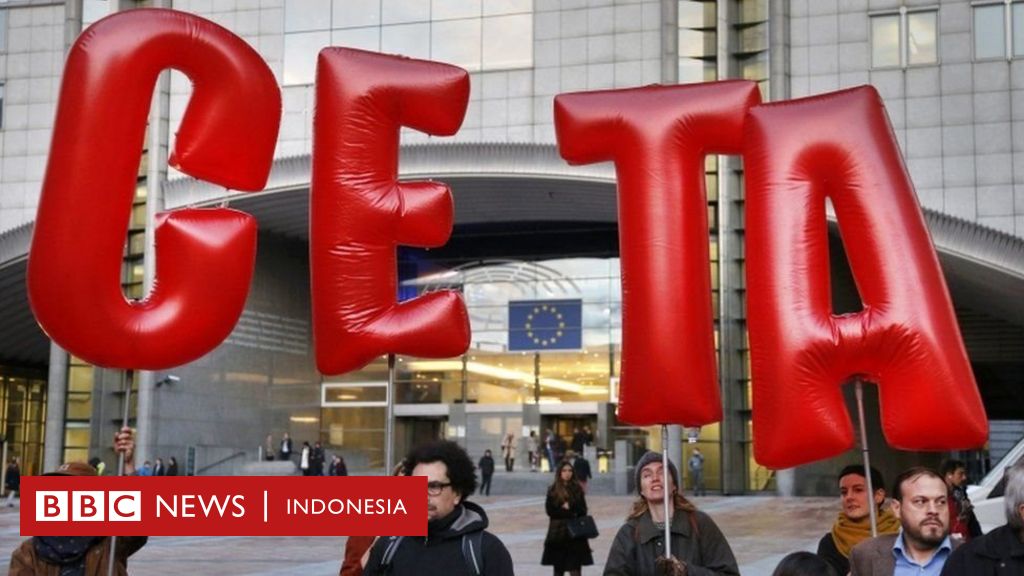Demonstration against the Ceta agreement in front of the European Union offices in Brussels, Belgium
Canada and the European Union are trying to continue to save the Ceta trade agreement which is blocked by the three Walloon regions – which are French-speaking regions – in Belgium.
European Council President Donald Tusk said there remained a possibility that Ceta (Comprehensive Economic and Trade Agreement) would be signed as planned. Canada’s trade minister also said the deal “is not dead.”
But Belgium said it could not support the deal because the country’s three French-speaking regions rejected it.
Ceta needs the support of 28 European Union countries to be legalized.
Ceta is the European Union’s most ambitious free trade agreement to date, negotiated seven years ago. So far, the other 27 countries of the European Union want to sign the agreement.
However, hopes of the deal being signed on Thursday (27/10) collapsed on Monday (24/10) when Belgian Prime Minister Charles Michel said he did not have the full support of the authorities federal, regional and political of his country. community institutions.
He said negotiations with Wallonia – a hardline socialist region with a population of 3.6 million – and two other bodies had failed.
Despite this, Donald Tusk remained optimistic after speaking on Monday with Canadian Prime Minister Justin Trudeau about Ceta.
On Twitter, Tusk wrote: “Along with Prime Minister @JustinTrudeau, we believe a conference on Thursday remains possible. We encourage all parties to find a solution. There is still time.”
Chrystia Freeland, Canada’s international trade minister, said she also remained hopeful the deal could be saved, but that “the decision is up to Europe.”
Chrystia Freeland says Ceta deal is ‘not dead’ and Canada has fulfilled its obligations
The European Council, which negotiates on behalf of 28 countries, has asked Belgium to make a decision by Monday.
But he then insisted that Thursday’s conference was not the deadline for signing the agreement.
“Now we need patience,” said EU Council spokesperson Margaritis Schinas. “The EU Council does not generally set deadlines or ultimatums.”
‘Laughing’
Wallonia has raised objections to the agreement, demanding more specific protection of labor, environmental and consumer standards.
The Belgian socialist group’s fears echo those of anti-globalization activists, who say Ceta and similar agreements give too much power to multinational companies, granting them powers that can even intimidate national governments.
Large demonstrations also took place in several EU countries against Ceta and the TTIP (Transatlantic Trade and Investment Partnership) between the EU and the United States.
Canada and the EU will eliminate 98% of tariffs under CETA, negotiated between 2009 and 2014.
Supporters argue it would increase trade between the two by up to 20% and encourage small businesses.
Critics say the deal threatens product standards, protects big business and allows companies to sue the government.
A little earlier, the Walloon regional president, Paul Magnette, had warned: “We will not decide anything under duress or pressure.”
His colleague from Flanders, the Dutch-speaking region of Belgium, Geert Bourgeois, said the obstacles were “very regrettable”.
“We have become the laughing stock of the whole world,” the center-right politician said, as quoted by the Reuters news agency.

“Amateur problem solver. Hipster-friendly alcohol lover. Beer buff. Infuriatingly humble tv geek.”






